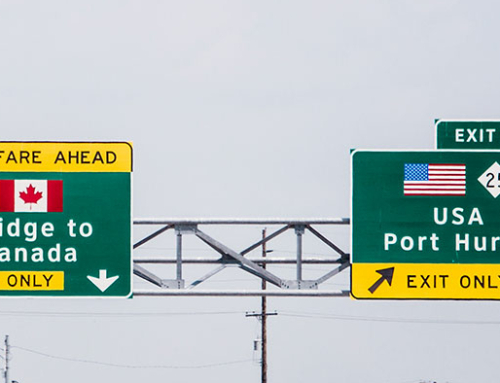David A. Altro and Jason S. Ansel recently co-authored an article which appeared in The Lawyers Weekly in the October 10, 2014 edition.
In the article, David and Jason explain the primary issues that Canadians need to keep in mind when purchasing US property and what the key differences are between the Canadian and US legal practices surrounding real estate. Please scroll down to read the piece.
Be aware of dual jurisdiction when buying in U.S.
DAVID A. ALTRO & JASON S. ANSEL
The Lawyers Weekly
October 10, 2014
There is no denying that the U.S. real estate market has long been of interest to Canadian investors. Whether our clients are looking across the border for an investment opportunity or simply a place to vacation, we all have our eyes focused south.
It is important to consider that our two countries have more differences than simply the weather. The differences between our countries are vast; from tax rates to probate procedures to the treatment of flow through entities — what we know to be true in Canada is not the same on the U.S. side.
The good news first: our Canadian wills are valid in the United States. There is no need to have American wills drawn up simply because your clients have purchased real estate there. Complications arise, however, when it comes to Canadian powers of attorney (POA) documents.
Unfortunately, Canadian POAs are typically not recognized in the U.S., which can cause issues and expenses should they be required in dealing with U.S. property. In the event one person on title becomes mentally incapacitated and the POA isn’t valid, the U.S. property will become frozen. No one will be able to sell or rent the property until a guardianship procedure has been completed in the U.S. county where the property is situated. Ownership has to be structured properly to avoid this kind of issue.
Probate is another difficult process to navigate in the United States. Although it is similar in concept to probate in Canada, things differ south of the border as many jurisdictions charge outlandish probate fees and the process can take a while to be completed. The goal is finding ways to hold title to your U.S. property so that probate will not be a factor, while at the same time ensuring that the structure will not put your clients in a precarious tax situation.
In the dual jurisdictional landscape of cross border real estate ownership, tax planning becomes of paramount importance. Canadians generally pay more tax than Americans and although our clients accept
that, they aren’t interested in paying more than they have to. Unfortunately, that scenario could occur when income or capital gains earned in the U.S. is treated differently in Canada. One scenario that could cause the dreaded double taxation situation is ownership of a U.S. asset in a problematic entity. While our treaty with the U.S. works well to avoid being double taxed through foreign
tax credits, this is only true when the same taxpayer is filing on both sides of the border.
We run into trouble when, for example, a U.S. Revocable Trust (USRT) or a limited liability company (LLC) is used to hold American real estate for a Canadian resident. These entities are two of the most common ways American residents hold title to properties and are therefore recommended to Canadians by U.S. lawyers and accountants who aren’t familiar with the cross-border dynamics at play.
The problem for Canadians is that the USRT and the LLC are fantastic structures for American residents because they are both disregarded entities for tax purposes on the U.S. side, but they are both deemed to be their own taxpayer in Canada. A different taxpayer means no foreign tax credit, which results in double taxation. It is crucial that Canadians use a structure that will afford the same tax treatment in the U.S. as well as in Canada.
Tax issues get even more thorny when we look at how the two countries tax estates on death. Owning a property in the U.S. gives the Internal Revenue Service the right to potentially tax that property on death. The “potential” factor is dependent upon the value of your U.S. assets being greater than US$60,000 and your worldwide estate being in excess of US$5,340,000. Owning a vacation property in the United States could expose an estate to a tax of up to 40 per cent on the value of your client’s U.S. assets. This is very different from the capital gains tax triggered in Canada on death. And beware that, even if one’s current
worldwide estate is less than US$5,340,000, the estate tax rules in the U.S. have fluctuated over the last few years and can continue to do so in the future, thus opening the door to potential tax as the laws change.
These are just a few of the issues one needs to consider when advising a client in connection with a U.S. real estate purchase. However, the issues are avoidable with some planning. What is the correct structure for your clients? An in-depth analysis is required to determine the issues and the appropriate course of action. Whether it is a cross border trust, a cross border corporate structure, or a cross border limited partnership, the solution is available if you know where to look and how to navigate the complex inter-jurisdictional rules at play.






